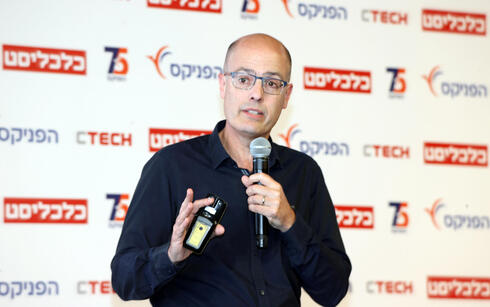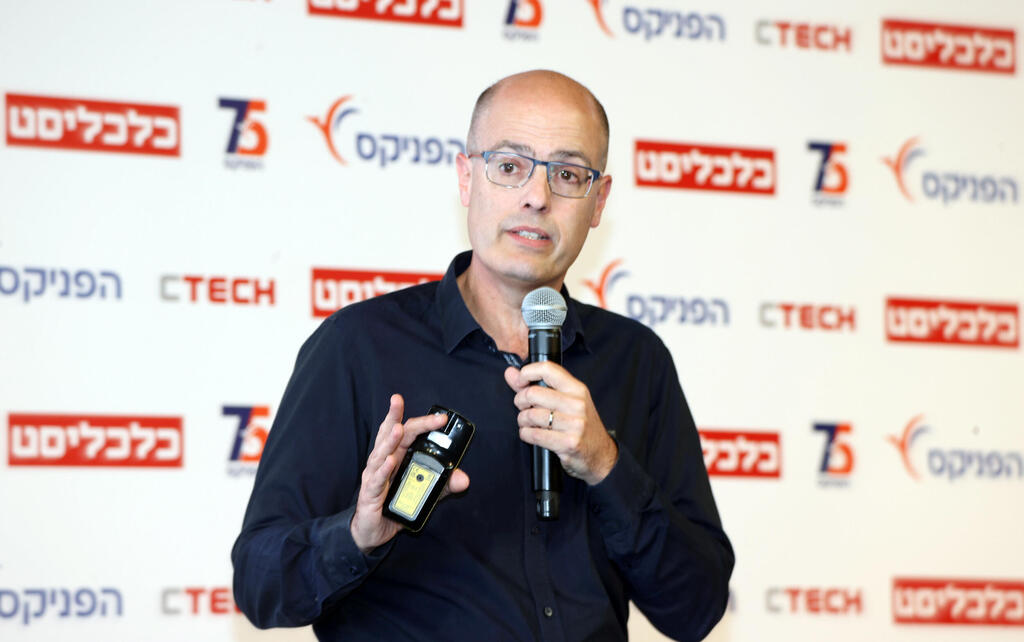
"I have great faith in the power of the Israeli startup, and I foresee a 'startup boom' after the war"
Avi Hasson, CEO of Startup Nation Central, was speaking at Calcalist's Israel Resilience Conference
"High-tech, more than any other country in the world, is the economic engine of the State of Israel," said Avi Hasson, CEO of Startup Nation Central, at Calcalist's Israel Resilience Conference in partnership with Phoenix. "In order for this engine to continue working even in 6 years, a partnership is required between the government sector and the private sector. Farsighted leadership is required to avoid measures that will harm high-tech."
In his remarks, Hasson referred to a number of current examples and said: "If we want to preserve the leadership of high-tech, we must not take steps such as the massive cut in the higher education budget, we must not cut the budget of the Volcani Institute, and we must not harm this environment, which is one of the foundations of the State of Israel. This reflects to investors the perception that no matter what happens here - we will always preserve the political-economic-taxation environment that supports innovation and entrepreneurship. There is no future for Israeli high-tech without the connection to the world. If we don't look a decade ahead and integrate more layers, and if we don't know how to take our other industries into the world of innovation, and if we can't ensure that the best people continue to live in the State of Israel, then we have no future."
Hasson referred to the fact that the war came on the back of an earlier stream of events that affected Israeli high-tech, but that despite the complex conditions in which it operates, "it does not stop." This reinforces the ethos according to which "Israeli high-tech will provide the goods, no matter what" - a sentiment that was part of an extensive advertising campaign in the world after October 7th. "This is a statement that even in a year that was both so difficult for Israeli high-tech and in the world - due to the interest rate environment and the economic cycle, and into this came the push for a judicial reform and then October 7th. It was clear that Israeli high-tech would face challenges it had never encountered. 15% of the workers were drafted into the reserves, and suddenly investors and customers couldn't come to Israel because there was no air travel. And I'm not even talking about the image effect. And it was clear that there is an opportunity here because unlike tourism which does not exist, high-tech, as long as it manages to supply the goods, there will be a demand for it."
According to him, this is exactly what high-tech has done. "We see companies raising more than three billion dollars; high-tech does not stop. Companies are acquired, and there are statements like Intel's about investing in a factory in the south - this engine continues to work under conditions that are very complex. This happened first and foremost because of national resilience, because of the entrepreneurial spirit - impatient entrepreneurship. We saw the positive impatience that did not wait, that volunteered and said - 'Here we are', and we saw the high-tech companies being recruited for national tasks and keeping this important economic engine alive, and continuing to develop and establish companies."
Hasson ended his speech with an optimistic message: "I have great faith in the power of the Israeli startup, and I foresee a 'startup boom' - after the war, after the abductees return, many people will establish new companies. In order for this to happen not only in the coming year but also beyond that, we all need to work together."














